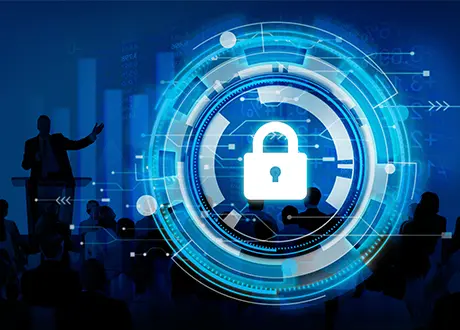Healthcare is one of the most data-sensitive industries, dealing with vast amounts of private information daily. Patient records, billing information, and financial data are crucial information healthcare providers store. Consequently, healthcare organizations face a higher risk of cybersecurity threats than most other industries. That’s where managed IT security comes into play. In this article, we will discuss the importance of managed IT security in healthcare and how it can protect healthcare organizations’ data.
The Risks of Cybersecurity Threats in Healthcare
With the increasing threat of cyberattacks on healthcare organizations, it is essential to consider Managed IT Security support. Hackers can access sensitive data through various means, such as phishing scams, ransomware attacks, and malware. The consequences of these attacks can be severe, including identity theft, fraud, and extortion of patients’ records.

Benefits of Managed IT Security in Healthcare
It is a proactive approach to protecting healthcare organizations from cyber threats. It involves outsourcing security functions to an IT service provider that specializes in cybersecurity. According to a 2021 study, healthcare experienced the highest number of data breaches globally. It can reduce these incidents by up to 70%, saving organizations millions in recovery costs. Additionally, it ensures compliance with HIPAA regulations, protects patient confidentiality, and provides 24/7 monitoring for early detection and response to threats.
Here are some of the benefits of this IT security service in healthcare:
1. Increased Data Protection
Providers implement sophisticated security protocols to safeguard healthcare organizations’ data. They use encryption techniques to protect sensitive information and secure servers to prevent unauthorized access. They also regularly update security measures to keep up with emerging threats.
2. Early Detection of Threats
They use advanced threat detection tools to monitor healthcare organizations’ networks 24/7. They can quickly detect anomalies or suspicious activities and respond promptly, minimizing the risk of a successful cyberattack.
3. Compliance with Regulations
Healthcare organizations are subject to strict regulations, such as HIPAA, that mandate the protection of patient data. They ensure that healthcare organizations comply with these regulations, reducing the risk of legal consequences.
4. Reduced IT Costs
Outsourcing IT security functions to a managed service provider can be more cost-effective than hiring an in-house IT team. They offer scalable solutions that adjust to a healthcare organization’s changing needs, reducing unnecessary expenses.
Conclusion
Managed IT security is crucial for healthcare organizations to protect sensitive data from cybersecurity threats. Crown Computers offers managed IT services in San Diego, including network support and virtualization. Our team of experts can provide healthcare organizations with customized IT security solutions to meet their unique needs. With our help, healthcare providers can focus on delivering high-quality care while we care for their IT security needs.
Read our other blog article:
Protecting community health with drug test cups
